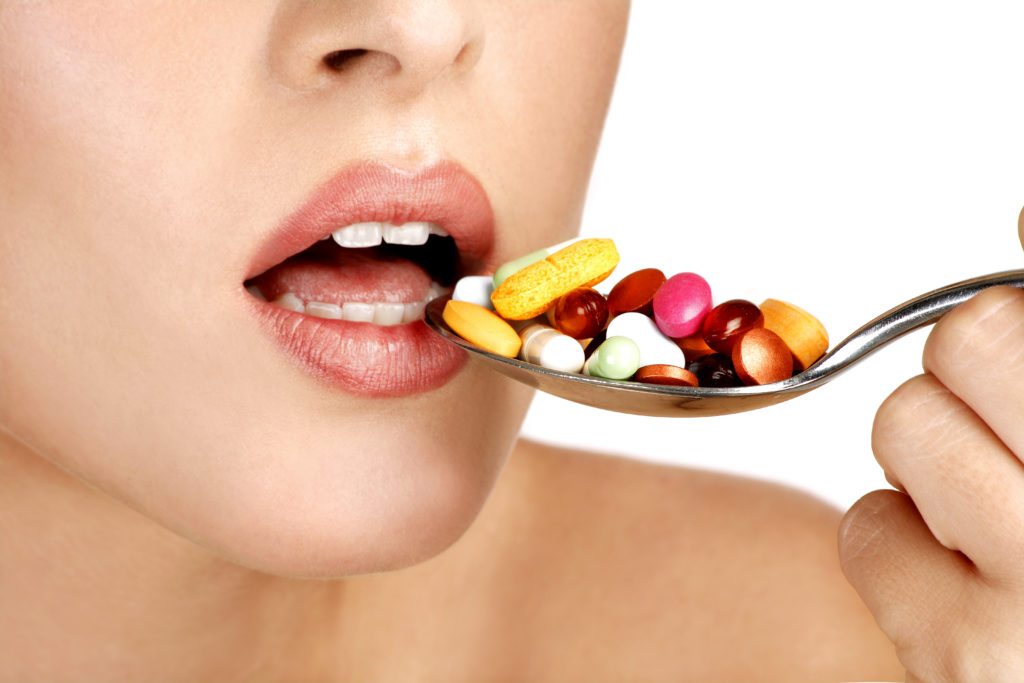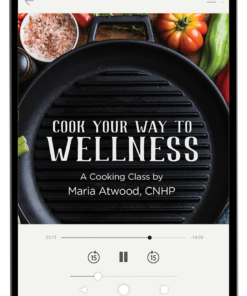I’ve sometimes been stunned on the first visit from a new client. I generally ask that they bring in all of their medications, along with any vitamins and other health-related products, and I’m not exaggerating when I say that many of them would bring in twenty or more substances! And oftentimes they didn’t understand the basic definitions of various vitamins and supplements, so let’s start there.
Defining Vitamins and Supplements
Synthetic vitamins are made to mimic the way natural nutrients act in our bodies. They are made in laboratories, not from food.
Clients will occasionally bring in some supplements that are defined as “something that completes or makes an addition” to. However, in this blog post I’m specifically talking about whole food supplements that are an actual addition to our diet. They are concentrated foods and generally contain vitamins. We will consider the differences in more detail below. But first, do you identify with the paragraph below?
If you were to look in your kitchen, bathroom, or wherever you store all these substances, as your eyes momentarily scan the many bottles that sit before you, do you ever have the shadowy thought in the back of your mind that these bottles are a sign not of abundance but excessiveness? 
Oh yes, dear readers, that happened to me many times, till I learned the difference between vitamins and supplements. If you identify with this situation, keep reading. It may be indicative of a much deeper issue that you should address because anything you take in excess is potentially dangerous.
The Difference in Action Between Vitamins and Supplements
The vitamins present in whole foods are found in nature as complete complexes. Synthetic, chemical vitamins, such as B1 and E tocopherols, both contain only isolates, or parts, of the whole complex. This difference is important because you need all of the synergistic factors that complete a vitamin to achieve a nutritional effect. Thus, whole food supplements act in the body like whole food, but they are in therapeutic concentrations. Synthetic forms of vitamins might have a stimulating effect, but they do not have a nutritional effect. They can, in fact, cause deficiencies because the body tries to complete the isolated form by grabbing nutrients from its own storehouse.
One of the many important things to understand about vitamins is that they do not provide energy as such. Proteins, fats, and complex carbohydrates are the fuels that energize and provide the raw material for growth.
Whole food vitamins, according to the many notes I’ve collected over the years, are the catalysts that spark the growth process. MedilinePlus.gov outlines the thirteen vitamins required by the human body (see below). While we can get them from whole food supplements, they are best utilized when we get them from the actual foods we eat—the way nature intended—so we should plan our meals accordingly. I outline some food suggestions further down, but first take a look at the thirteen essential vitamins we need and try to get a basic understanding of them.
- Vitamin A
- The eight B vitamins: B1 (thiamine), B2 (riboflavin), B3 (niacin), B5 (pantothenic acid), B6, B7 (biotin), B12, and folic acid
- Vitamin C
- Vitamin D
- Vitamin E
- Vitamin K
Unfortunately, most vitamins from your local health food store are synthetic, meaning they are produced in laboratories with chemicals. I would say they make a mockery of the real vitamins found in whole foods. They can be toxic, especially in large amounts. They are produced in mass quantities and are therefore inferior to both whole foods and whole food supplements like those produced by Standard Process.
SP whole food supplements are made into tablets or capsules, but while they look similar to bottled vitamins, they actually contain a complex of concentrated whole foods, produced in therapeutic strength and derived from pristine organic gardens and ranches. Supplements are primarily meant to better affect a specific health condition (e.g., digestive problems) or to provide some important nourishment missing in your diet, such as calcium and magnesium in the right ratio.
In other words, whole food supplements are an actual addition to your diet or meal. Moreover, they aren’t heated and they don’t contain any synthetic substances. Yet even in this category I encounter many clients who not only have an excessive amount of synthetic vitamins but also an excessive amount of whole food supplements!
How do we bring balance to our lives, spend less money, and get the superior nutrition and positive results from vitamins that we should be getting from real, whole, organic foods? And how do we get concentrated foods from whole food supplements to address some of our more serious nutritional needs?
A Program that Addresses Only What You Need
The old saying that “everybody is different” also applies to getting the best of the best vitamins and supplements tailored to meet our individual needs. It’s called a protocol, which is generally a list of products recommended by your nutritionist or holistic practitioner. Your specific protocol is compiled after you take some tests (either written or by some other means), the answers to which will help your practitioners better address your particular health issue or issues.
Since it is best to get our vitamins from foods (which I detail below)—and since whole food supplements already have many of the whole food vitamins that we need—we should eliminate synthetic vitamins altogether.
Hopefully, you can readily see that a well-planned protocol from your holistic practitioner will not only give you exactly what you need, but it can also be a great tracking tool to help you resolve your needs. During the more active years in my practice, I found that providing a well-researched protocol for my clients’ particular health issue or issues was ultimately the best way to help them avoid stockpiling excessive bottles of synthetic vitamins. A good protocol also helped save my clients an untold amount of money because most synthetic vitamins are no-doubt urinated out of your system. (Smile)
What If You Have Multiple Issues and Need Multiple Protocols?
Fortunately, professional holistic practitioners can compile multiple protocols for a single client when necessary. This guarantees there will be little or no overlap as you resolve the various issues that you are encountering. A good practitioner is also someone you can talk to about learning other ways and means of maintaining both your physical and mental health. Also, many practitioners will set up payment arrangements if your health issues require more than an average visit of once per month.
Vitamin-Rich Foods for Your Dining Pleasure and Good Health
As many of you know, I’m a chapter leader for the Weston A. Price Foundation. As such, I pretty much stay with the diet outlined by Sally Fallon Morrell in her book Nourishing Traditions. You won’t need synthetic vitamins if you consistently include these foods in your diet. Visit Traditional Cook to learn more about them and what makes them all specifically vitamin rich.
The Fourteen Super Foods
- Butter from grass-fed cows (preferably raw)

- Oysters
- Liver from grass-fed animals
- Eggs from pastured or free-range hens (no soy feed is optimal)
- Cod-liver oil
- Fish eggs
- Whole raw milk from grass-fed cows
- Bone broth
- Wild shrimp
- Wild salmon
- Whole yogurt or kefir
- Beef from grass-fed steers
- Sauerkraut
- Organic beets
Other Great Resources for Your Reading Pleasure
Put Your Money Where Your Mouth Is! Guide to Healthy Food Shopping – Ditch the fads and get to the fundamentals. Start your journey to better health through superior nutrition in the pages of this revised and expanded edition of Stephanie Selene Anderson’s deceptively slim guide to healthy food shopping. You’ll learn why Dr. Michael Gaeta calls it “the real deal for real food.” (Available in print and ebook editions.)
Why Your Doctor Offers Nutritional Supplements – While many people know that processing food destroys vital nutrients, few realize that the synthetic “vitamins” added back to processed foods—and found in most supplement bottles—are nothing like vitamins as they exist in whole foods. This simple but profound fact underlies this brilliant guide to nutrition and health from Stephanie Selene Anderson. (Available in print and ebook editions.)
[xyz-ihs snippet=”Begin-Authors-Note”]Afterthoughts from the Traditional Cook
The Power of Real Nourishment
If you sincerely want to improve your overall health and/or help bring healing to a current health issue, listen to others who tried and failed until they had a serious willingness to replace activities that do nothing to nourish the body, mind, and soul with those that genuinely do!
Without this commitment, you will no doubt flounder, and later say, “It didn’t really work for me!” This commitment may even mean reconsidering a change in your career, working fewer hours, and (of great importance in my case) reducing my involvement in clubs, organizations, and/or other worthy but time-consuming endeavors that kept me from being able to focus on the one thing that allowed me to do more: Better health! (See my personal health perspective here.)
Maria Atwood, CNHP
[xyz-ihs snippet=”End-Authors-Note”]Note from Maria: I am a Certified Natural Health Professional, CNHP, not a medical doctor. I do not diagnose, prescribe for, treat, or claim to prevent, mitigate, or cure any human diseases. Please see your medical doctor prior to following any recommendations I make in my blogs or on my website.
Images from iStock/AntonioGuillem (main), ipag (girl with pills on spoon), wildpixel (produce in bottle), iatlo (woman holding her face).




